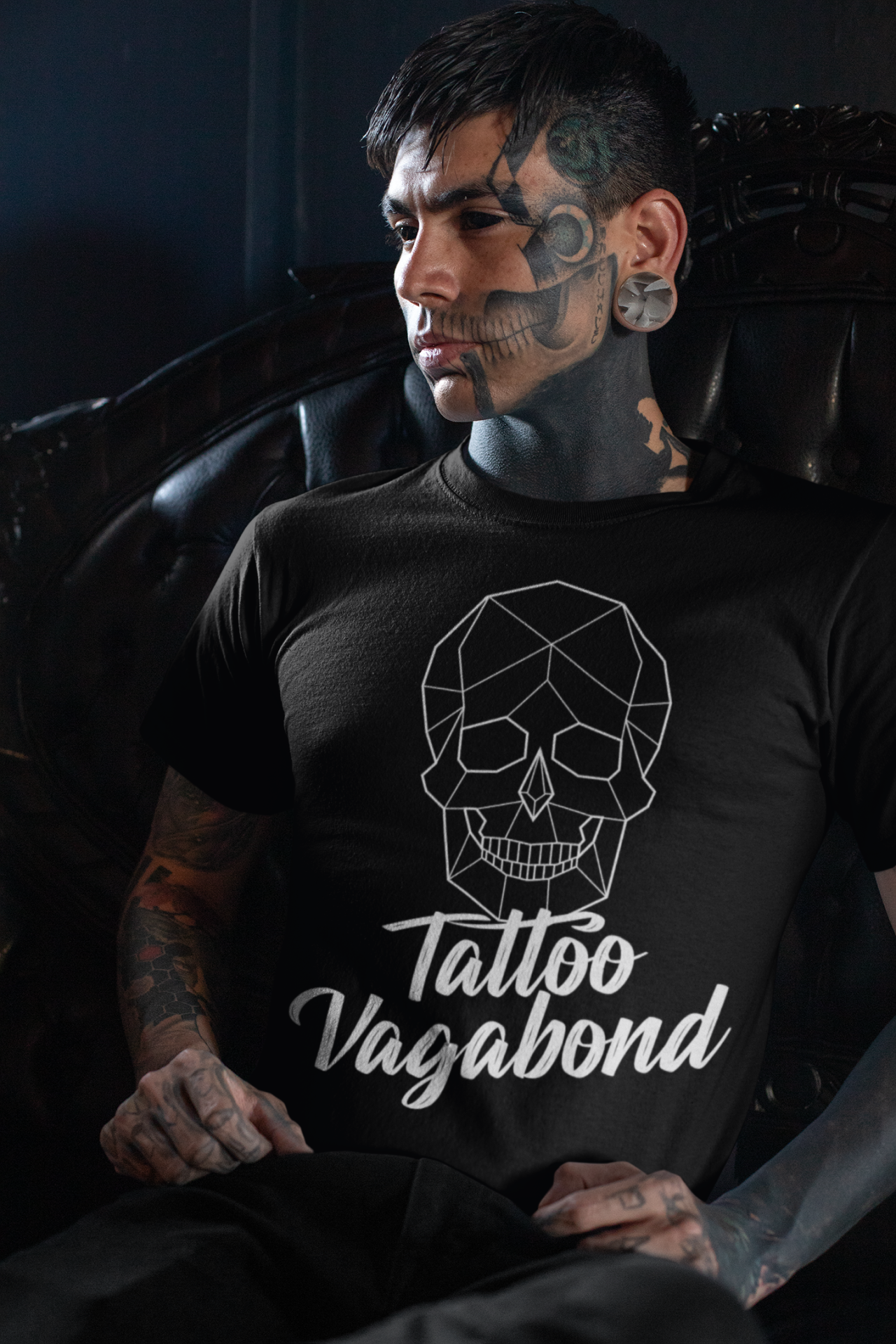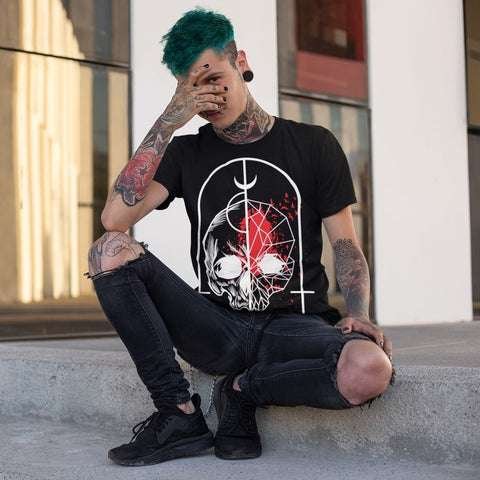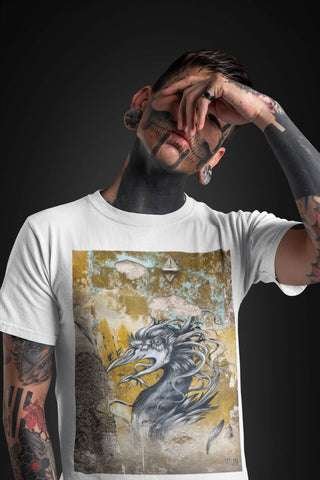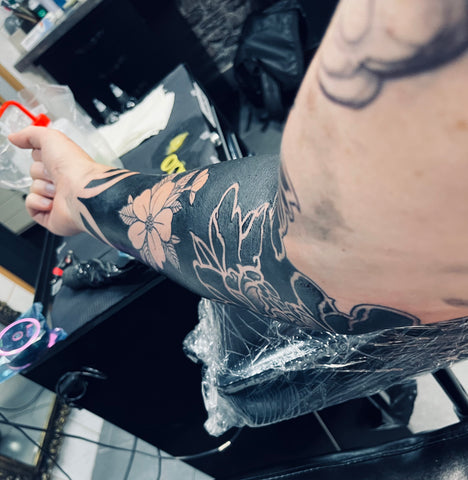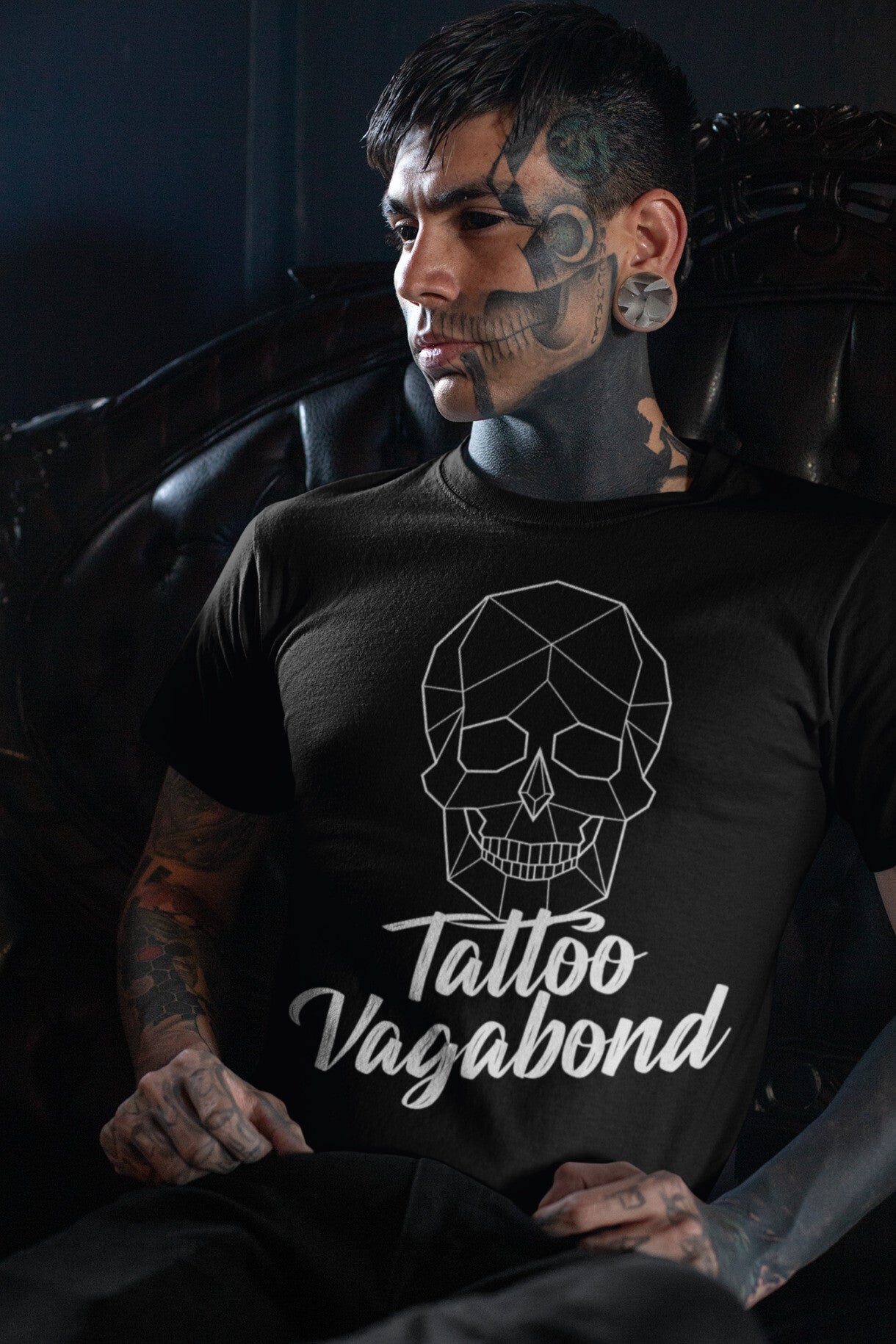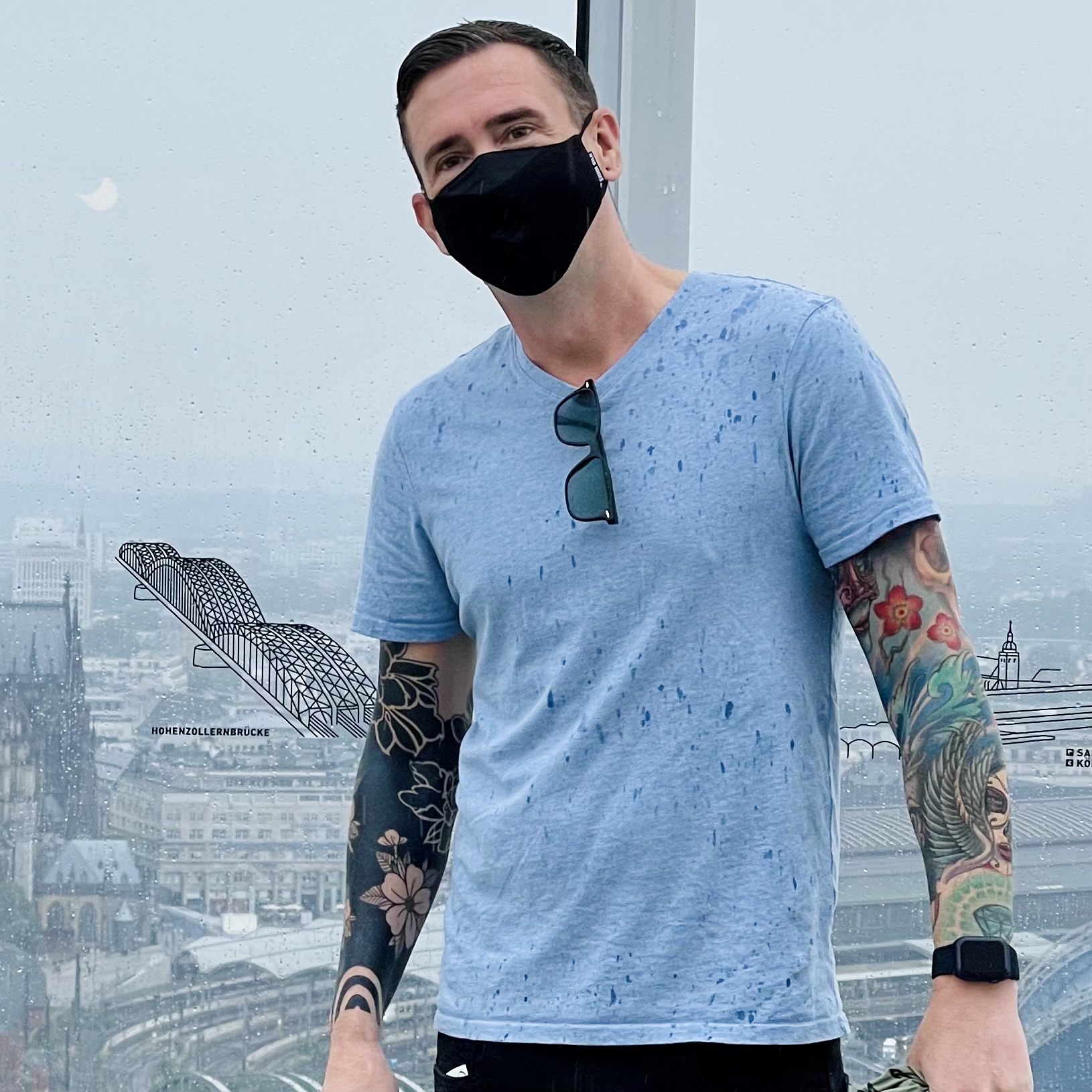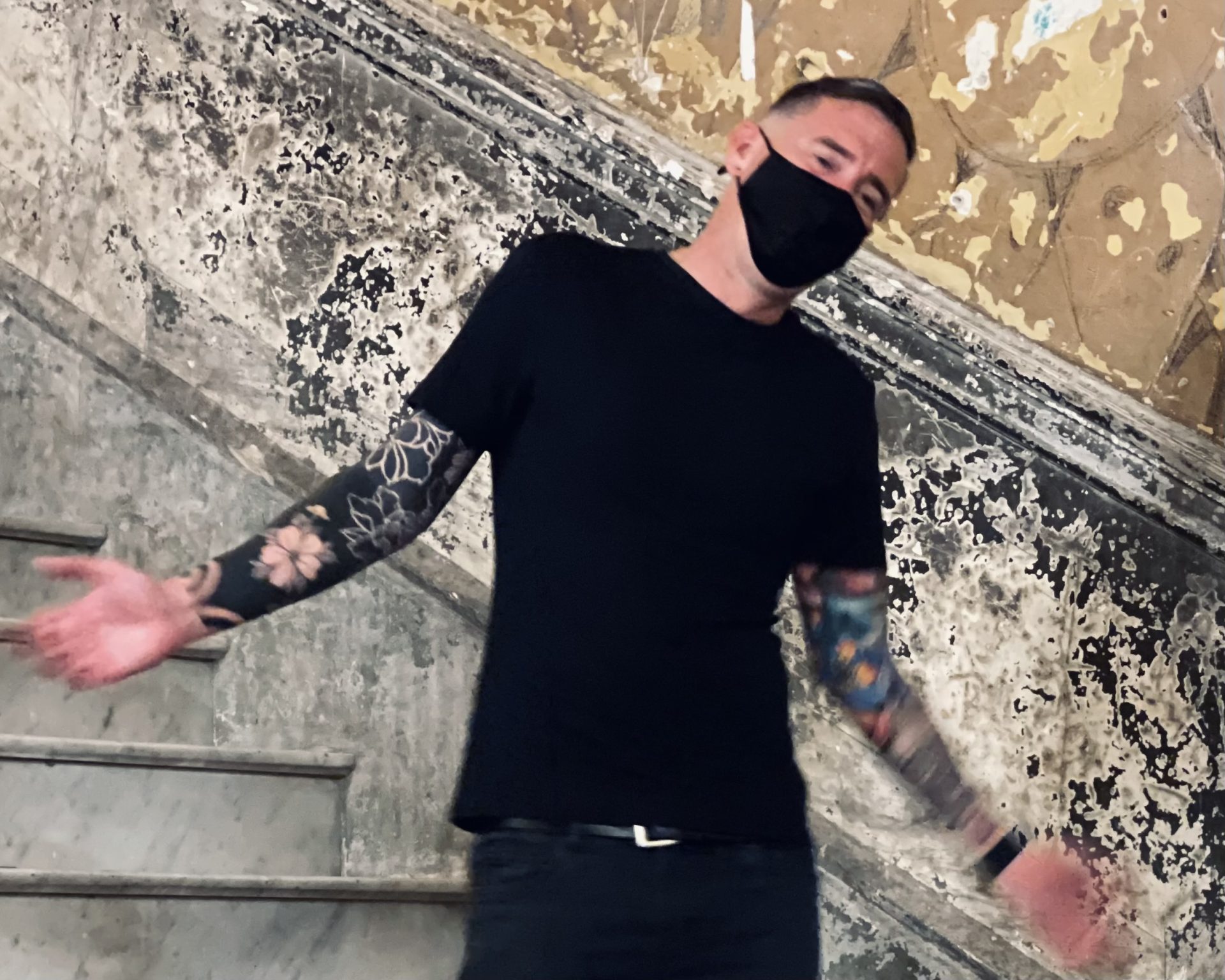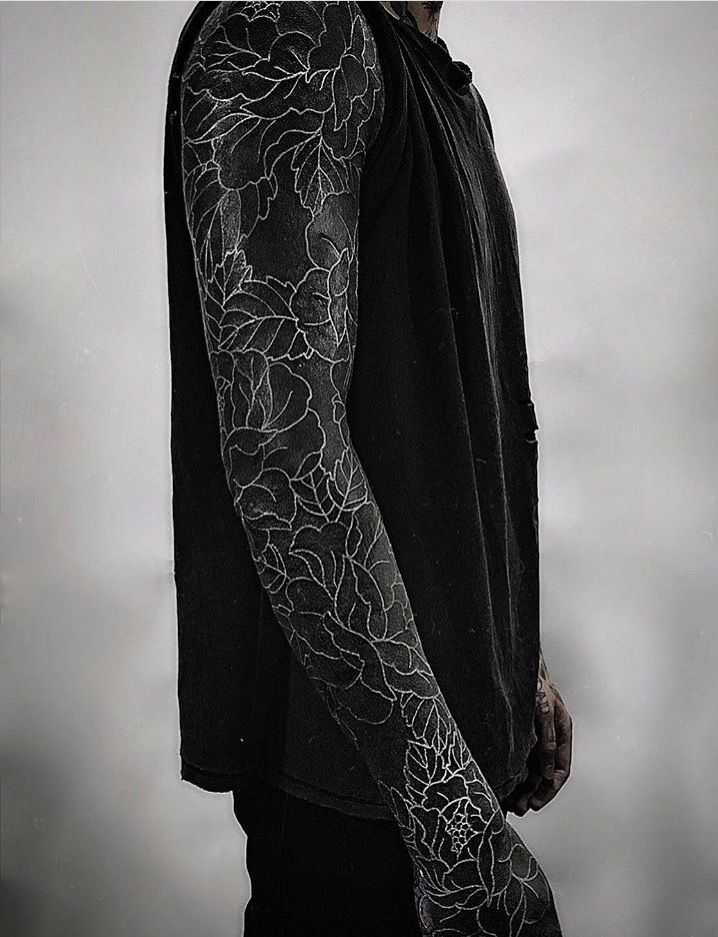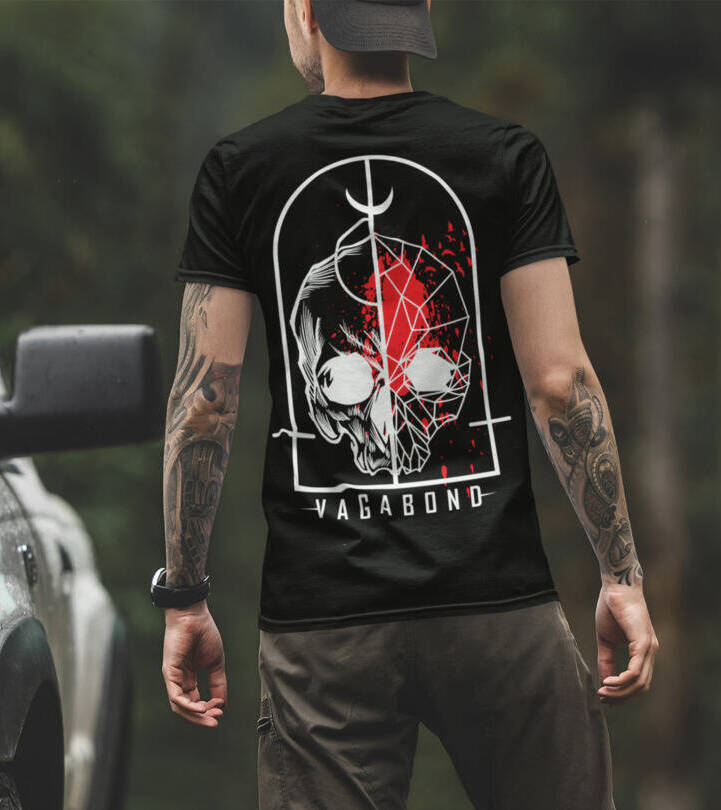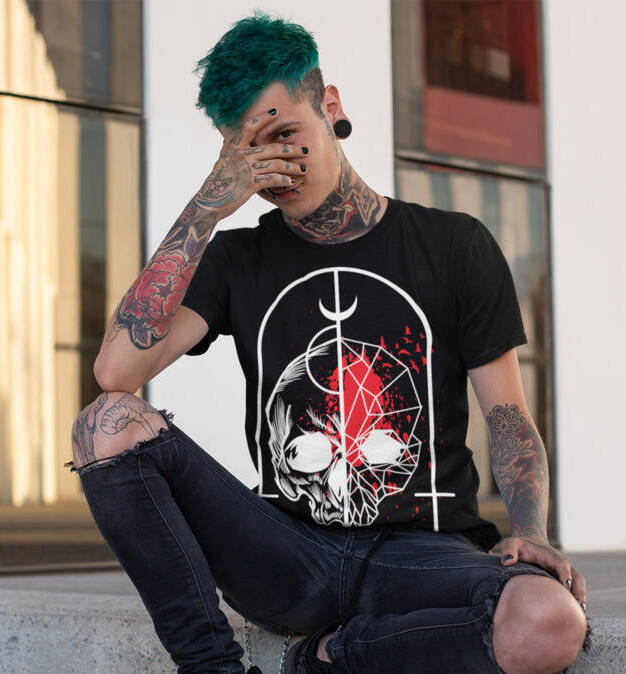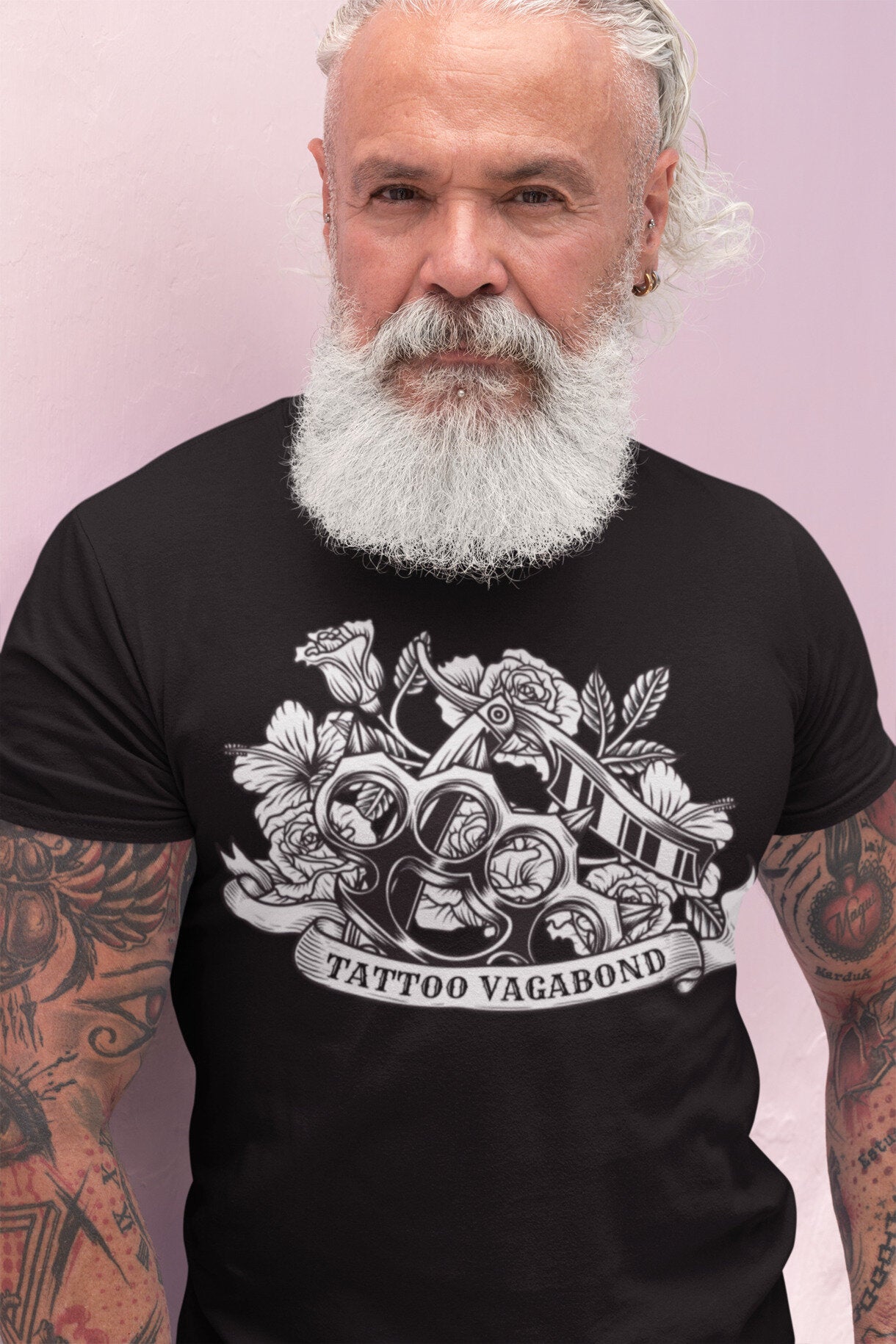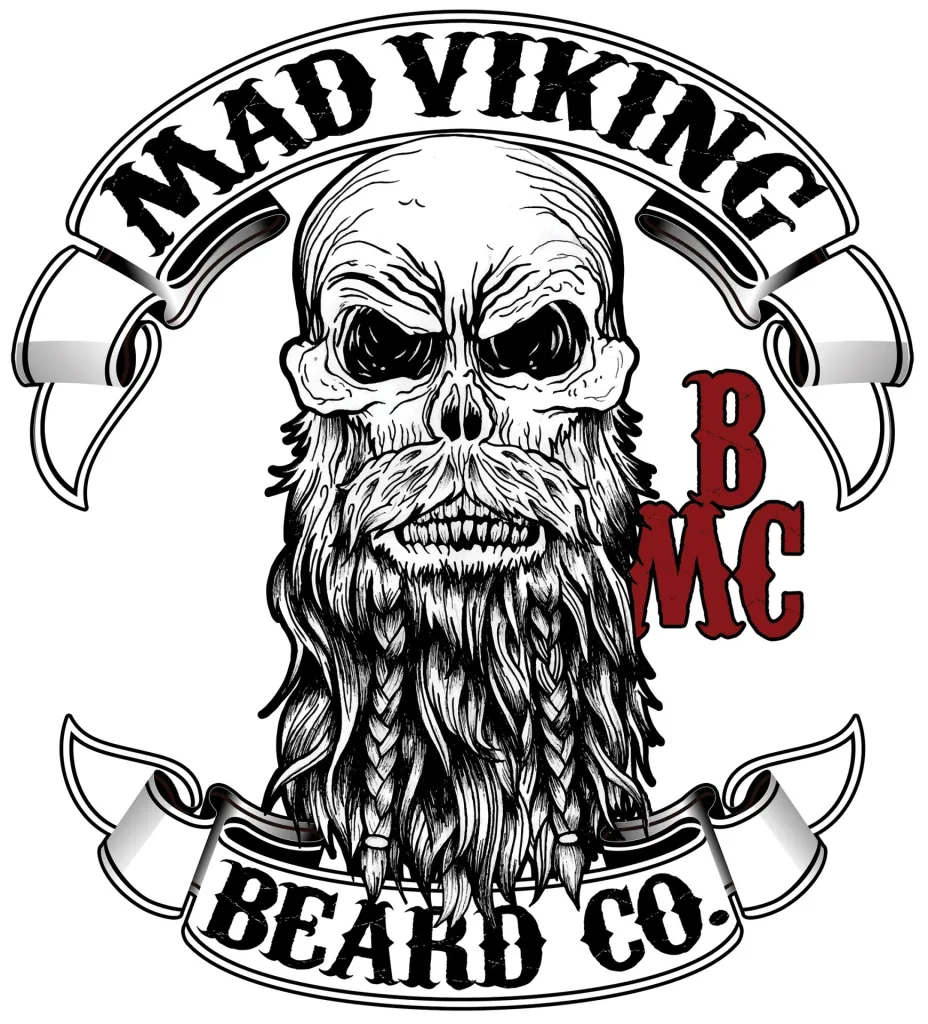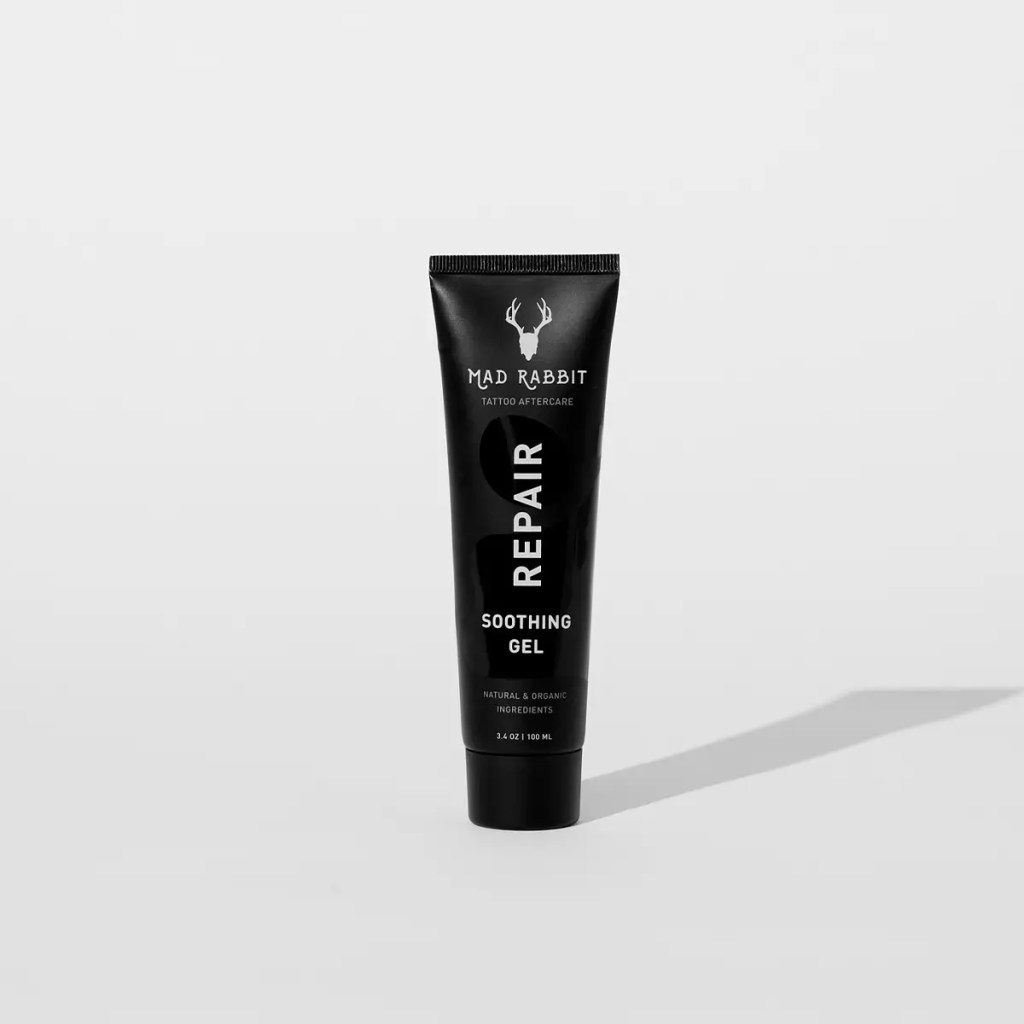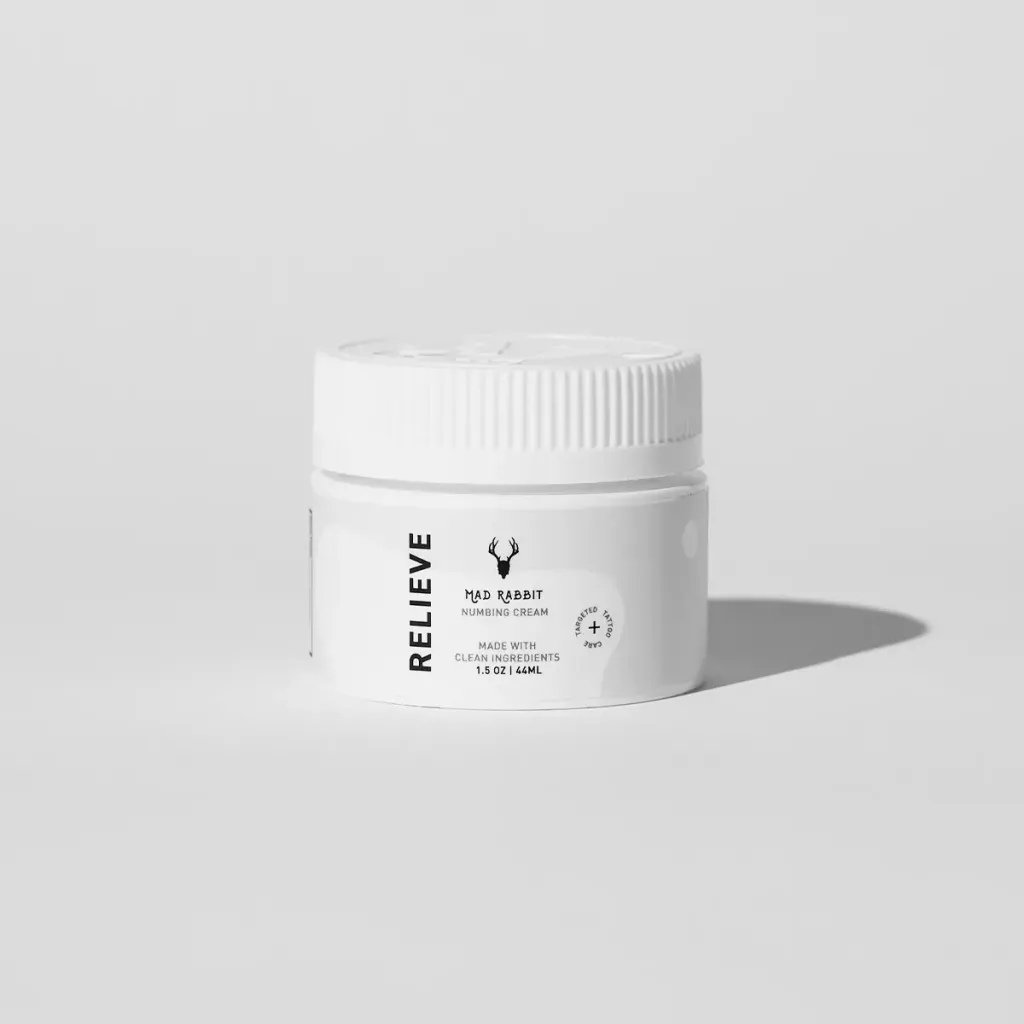To quote those immortal words from the kid on the ever popular El Paso Taco advertisement, ‘why not both?’
I’ve got one colored sleeve and one black tattoo sleeve. They’re a matched pair that were designed for me by my artist. And if you were to ask me whether I preferred the black sleeve or the colored tattoo sleeve, I wouldn’t be able to give you a straight answer. I like them both for different reasons.
But let’s focus on the black sleeve, as there’s a lot of worthless opinions dressed up as expert advice on the internet about black tattoos. And I’ll seek to dispel some of the myths surrounding heavy blackwork tattoos.
First myth – Blackout tattoos hurt more than regular tattoos
They don’t hurt more than regular tattoos. A tattoo involving heavy amounts of black ink over large surfaces, will have the same sensations for those body parts as any other color of tattoo.
However, these styles of tattoo often use larger gauge needles and require more passes over the area to ensure a consistent distribution of ink. And to ensure no spots have been missed.
My tattooist did both my black and my colored tattoo sleeves. Same artist, but working in Germany and Peru. But he took a tiny bit longer to do the detailed colored sleeve.
Mainly because he had to continually go back over the same spots for proper color saturation. And because of all the detail involved. On my black sleeve, he could cover a larger surface area in each session.
The tattoo gun he used to do my black sleeve was far more vicious than the one he used to do my color sleeve. But in the end, the blackout took less time and hurt less.
The little rotary tattoo machine that he used for my detailed colored sleeve, couldn’t cut the mustard when it came to the heavy blackwork. So, he had to go back to the old school dual coiled plug and play tattoo machine. And he had to use it with a heavy gauge needle.
It sounded like a chainsaw. And compared to the high tech rotary tattoo gun, it felt like a chainsaw too. The thing was down right abusive.
But did it hurt more? No. It didn’t hurt more. It was the same amount of pain. Just spread over a much larger area during each tattoo session.
Second Myth – Blackout tattoos take longer to heal
The length of time it takes a tattoo to heal is dependent on the size of the tattoo. Bigger tattoo work takes longer to heal, irrespective of which color the work is. The bigger the surface area tattooed, the longer you can expect it to take to heal.
When my blackwork was healing, it also didn’t itch any more, or less, than a colored tattoo. The amount of itchiness you experience will be determined by the size of your tattoo. And its placement on your body is also a factor. Some tattooed spots itch more than others, in my experience.
Third Myth – Blackout tattoos are a form of cultural appropriation
This myth seems to float around based on the idea that people with heavy black tattoos are trying to make themselves ‘black’. Darker skinned people are discriminated against, so we’re appropriating their skin color. Or so some people claim on the internet.
So, the argument flows that by having heavy blackwork tattoos, we’re all closet supremacists or some such nonsense. Ah, nope. Black people and all those with skin colors other than white, do face discrimination daily. That’s a real fact. They do.
But a blackout tattoo is not an attempt to be ‘black’. Or to appropriate somebody’s skin color. Nor does any ‘culture’ have a claim on the particular style of tattoo. Blackout tattoos are not a form of ‘cultural appropriation’.
Fourth Myth – Blackout tattoos may pose a danger to your skin
This ones partially true. It’s claimed that blackout tattoos do more damage to your skin and also make it harder to detect skin abnormalities like cancer.
First, they don’t do any more or less damage to your skin. The tattoo gun and the artist do the damage. The color of the tattoo is irrelevant. A black tattoo doesn’t do any more or less damage to your skin.
Next, the skin abnormalities. This part is partially true. It is harder to detect skin abnormalities like melanoma or other cancers when you have large black tattoos.
If you’re prone to skin cancers, you should probably rethink your decision to get a blackout tattoo. Or any tattoo for that matter. I got a checkup recently. The doctor couldn’t check either arm!
Both the colored sleeve and the blackout sleeve made it impossible for him to check me for skin cancer. He basically just busied himself with the un-tattooed spots and ignored the rest.
So, if you’re worried about skin cancer, don’t get any form of tattoo. Because all tattoos will make it harder for your doctor to detect skin abnormalities. But, if you have a tattoo, always apply sunscreen!
Conclusions – Am I happy with my black tattoo sleeve?
Heck yes. I’m happy with all of my tattoos. I don’t get tattooed to follow a trend. Nor do I get tattooed to please others or for social media. I get tattoos for myself. And to please nobody else.
If a black tattoo is what you want, get it. Ignore everybody else. If it’s ‘boring’ for your artist to do, as some on the internet claim, well, that’s the artists problem.
Most artists I know, do find working on anything to be boring. But they love getting paid. And the only thing they love more than getting paid, is getting paid for their particular craft. They’ll tattoo anything you want, wherever you want it, for enough coin.
If it costs a little more to do because it involves more needles, more ink, takes longer or is more boring for the artist well, if you can’t afford a tattoo you should save up. And when you can afford the tattoo you want, then get it. Just remember that blackout tattoos aren’t any better or any worse, than colored tattoos.
But, for the record, my colored sleeve required more needles and consumables, took longer and cost more. My blackout sleeve hurt less, took less time and cost less than my colored sleeve.
So, when deciding on whether you should get a blackout tattoo or a colored sleeve, just remember those immortal words, ‘why not both?’. Two tattoo sleeves are always better than one.

